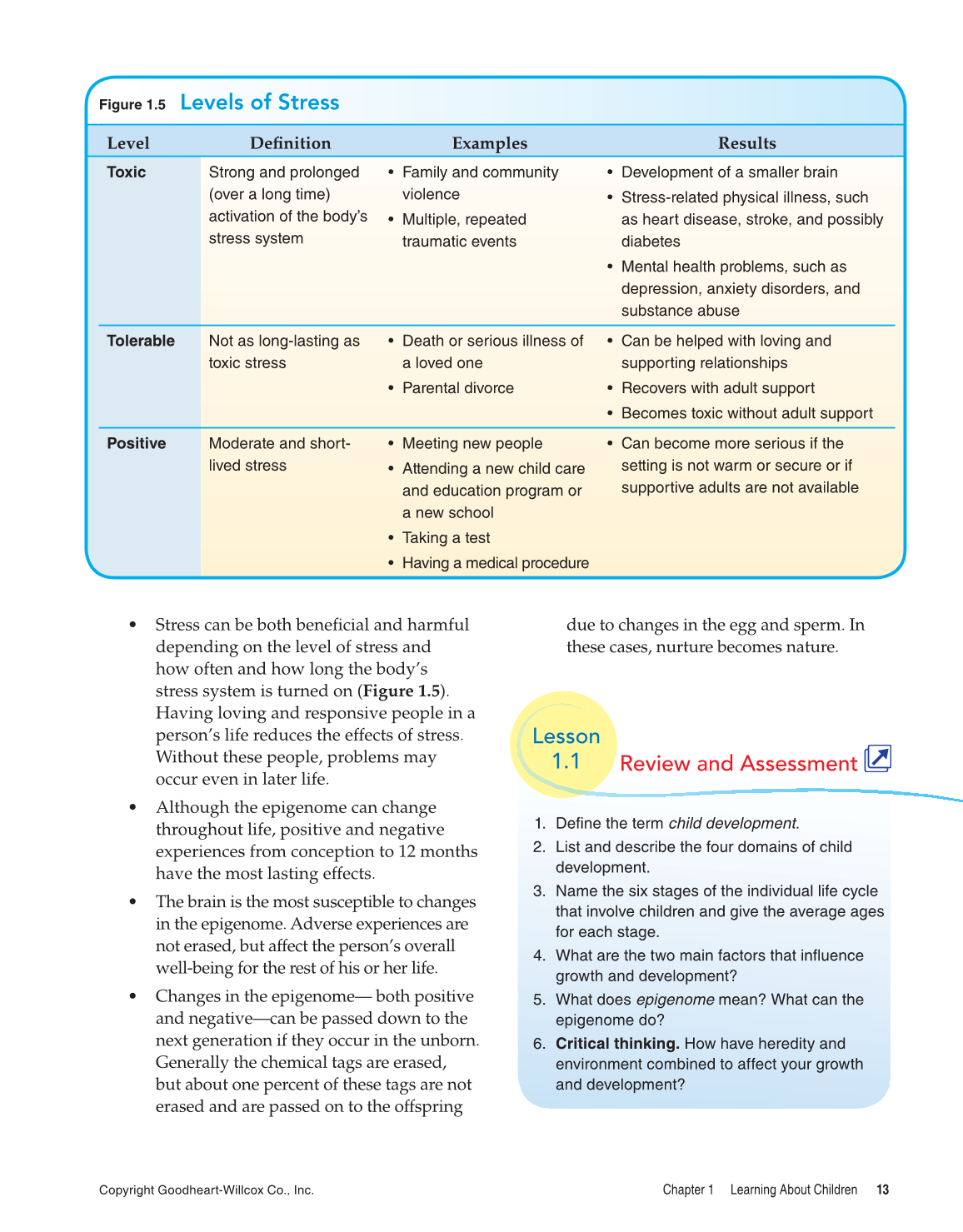Copyright Goodheart-Willcox Co., Inc.
Chapter 1 Learning About Children 13
due to changes in the egg and sperm. In
these cases, nurture becomes nature.
Lesson
1.1
Review and Assessment
1. Defi ne the term child development.
2. List and describe the four domains of child
development.
3. Name the six stages of the individual life cycle
that involve children and give the average ages
for each stage.
4. What are the two main factors that infl uence
growth and development?
5. What does epigenome mean? What can the
epigenome do?
6. Critical thinking. How have heredity and
environment combined to affect your growth
and development?
• Stress can be both benefi cial and harmful
depending on the level of stress and
how often and how long the body’s
stress system is turned on (Figure 1.5).
Having loving and responsive people in a
person’s life reduces the effects of stress.
Without these people, problems may
occur even in later life.
• Although the epigenome can change
throughout life, positive and negative
experiences from conception to 12 months
have the most lasting effects.
• The brain is the most susceptible to changes
in the epigenome. Adverse experiences are
not erased, but affect the person’s overall
well-being for the rest of his or her life.
• Changes in the epigenome— both positive
and negative—can be passed down to the
next generation if they occur in the unborn.
Generally the chemical tags are erased,
but about one percent of these tags are not
erased and are passed on to the offspring
Figure 1.5
Levels of Stress
Level Defi nition Examples Results
Toxic Strong and prolonged
(over a long time)
activation of the body’s
stress system
• Family and community
violence
• Multiple, repeated
traumatic events
• Development of a smaller brain
• Stress-related physical illness, such
as heart disease, stroke, and possibly
diabetes
• Mental health problems, such as
depression, anxiety disorders, and
substance abuse
Tolerable Not as long-lasting as
toxic stress
• Death or serious illness of
a loved one
• Parental divorce
• Can be helped with loving and
supporting relationships
• Recovers with adult support
• Becomes toxic without adult support
Positive Moderate and short-
lived stress
• Meeting new people
• Attending a new child care
and education program or
a new school
• Taking a test
• Having a medical procedure
• Can become more serious if the
setting is not warm or secure or if
supportive adults are not available
